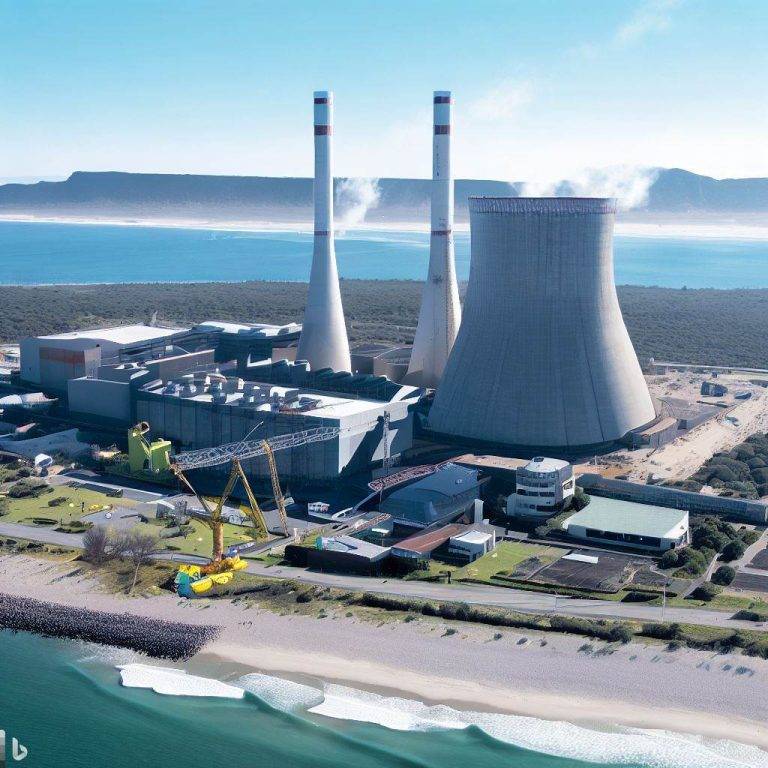In a positive turn of events for South Africa, recent month-end data from the Central Energy Fund (CEF) indicates a substantial decrease in diesel prices for April 2023, while petrol prices are predicted to remain stable. This development is expected to bring relief to motorists, freight companies, and businesses that rely on diesel-powered generators during load shedding periods.
- Diesel prices in South Africa are set to experience a substantial decrease in April 2023, while petrol prices are expected to remain stable, bringing relief to motorists and businesses.
- Food production businesses will benefit from a tax exemption on diesel starting from 1 April 2023, exempting them from paying 80% of the Road Accident Fund levy associated with diesel used in stationary generators for food production.
- Despite the drop in global oil prices, the weakening South African rand continues to challenge local fuel prices, negating gains for petrol prices and impacting diesel prices.
The data collected on 29 March 2023 reveals an impressive over-recovery of approximately 75 cents per litre for diesel, while petrol prices could experience a minor decrease of 2 cents per litre, barring any additional adjustments. It is important to note that the final full-month adjustments may also account for changes in the slate levy or other levies at the beginning of the new fiscal year, which could cause petrol prices to fluctuate.
For the month of April, both the Road Accident Fund (RAF) levy and General Fuel Levy (GFL) will remain unchanged. The decrease in diesel prices is a welcome development not only for individual motorists and freight companies utilizing the fuel, but also for numerous businesses that depend on diesel generators to maintain operations during load shedding.
Businesses operating in the food production sector are poised to benefit even further, as the National Treasury and the South African Revenue Service (SARS) will implement a tax exemption for diesel beginning on 1 April 2023. This tax exemption will allow businesses involved in food production to be exempt from paying 80% of the RAF levy associated with diesel, provided that the diesel is used to power stationary generators specifically for food production purposes.
Presently, the RAF levy stands at R2.18 per litre, which will remain the standard rate with no increases scheduled for 2023. Even after the refund, food manufacturers will still be required to pay 44 cents per litre towards the tax.
The considerable drop in diesel prices can be attributed to lower global oil prices, contributing approximately R1.14 to the over-recovery in prices. Global oil markets have experienced volatility over the past month, with fluctuating stocks and diminishing demand.
Despite these fluctuations, oil prices are considerably lower than in February, when futures were range-bound between $80 and $90 a barrel, primarily leaning towards the higher end throughout the month. In contrast, prices have now decreased to around $78 a barrel, having dropped to as low as $73 earlier in the month.
Bloomberg analysis suggests that oil prices have stabilized as a result of lagging US diesel demand, which has overshadowed disruptions to shipments from Turkey. Although the West Texas Intermediate (WTI) crude oil benchmark is currently trading just above $73 a barrel and Brent crude at $78 a barrel, Bloomberg predicts that WTI will soon become the pricing standard due to consistently low Brent inventories, making it an unreliable benchmark for global markets. The impact of this shift on local pricing remains uncertain.
Unfortunately, the weakening South African rand continues to pose a significant challenge for local fuel prices. Currently contributing around 40 cents per litre to an under-recovery, it has effectively negated any positive oil gains for petrol prices and diminished the favorable impact on diesel prices. Despite the rand strengthening on Wednesday, market volatility is anticipated as investors await the South African Reserve Bank’s interest rate decision and assessment of the nation’s economy later on Thursday.
The local currency has consistently remained above R18 to the US dollar, reflecting a persistently weaker position. Factors such as global risk aversion and ongoing local issues, including load shedding, have contributed to this unfavorable performance.
Key Data Points on South African Diesel Prices and Related Factors
| Data Point | Value |
|---|---|
| Date of Data Collection | 29 March 2023 |
| Diesel Over-Recovery | Approximately 75 cents per litre |
| Potential Petrol Price Decrease | 2 cents per litre |
| RAF Levy (Current) | R2.18 per litre |
| Tax Exemption for Food Producers | 80% of RAF levy |
| RAF Levy for Food Producers | 44 cents per litre |
| Global Oil Prices (February) | Range-bound between $80 – $90 |
| Global Oil Prices (Current) | Approximately $78 a barrel |
| WTI Crude Oil Price | Just above $73 a barrel |
| Brent Crude Oil Price | $78 a barrel |
| South African Rand to USD | Above R18 to the dollar |
| Rand’s Under-Recovery Impact | Around 40 cents per litre |





















